Nier: Automata was almost a Farmville-style mobile game
How Square Enix committed to its most eccentric game in years.
Yoko Taro is a strange and brilliant man.
A self-confessed loather of interviews, he often elects to speak to the press behind the eerie, grinning moon-like mask he wore to announce the sequel to Nier, one of his strangest games to date. Yet for all those protestations, he's an amazingly blunt, frequently hilarious interviewee - even if you're never quite sure where the affected persona stops and the actual truth lies.
The last time I met Taro, director of famously off-beat action RPG games such as Drakengard and Nier, he told me how easy it's been working with Nier Automata developer Platinum Games, and how their good work frees him up to indulge some of his own interests. "All the time I spent on the original getting angry at the development team. Platinum's removed that by working so well," he said back in the aftermath of Nier Automata's unexpected announcement. "So I spend that time drinking. In the end it hasn't really changed how much work I do. But when I drink I make better games, so that's okay."
So, now that Nier: Automata's finally done and dusted - it's been out in Japan a short while, with the Western release following next week - there's one question that should give us some indication of how it's all shaping up. How's the drinking been going?
"My doctor wasn't very happy about the condition of my liver. But I'm still drinking a lot. I might drop dead at any minute."
Hold out a little longer, Taro. Because this one promises to be good.
Of all Square Enix's RPGs to get a sequel, Nier felt like the least likely, though given its cult status it's certainly the most deserved. How it came about was thanks to a twist of fate befitting the game itself.
"The timing was amazing, miraculous," says Square Enix producer Yosuke Saito. "This collaboration was suggested when we'd just come up with the idea of making the Nier sequel a mobile game. We were inspired by Platinum Games - they were great fans of the first Nier, and their suggestion was remaking Nier as a Vita title. So we got two different projects together, and maybe the best option was doing a full console game."
Nier 2 as a mobile game? Taro says the original idea was along the lines of Farmville - something that surely would have gone down just swimmingly with the fans.
"Yeah, we're very glad we didn't go down that route," says Saito.
Platinum's fingerprints are all over this one, and while Nier: Automata remains resolutely an RPG, it's the action that comes to the fore when playing the opening hour. Were it not for the boozy whimsy and the willingness to wrong-foot the player at each turn - two facets you sense Platinum were always going to be comfortable with anyway - you might even have a hard time pinning this down as a follow-up to the original Nier. Why go for a follow-up to Nier, then, and not for something entirely new?
"Well, seven years is a long time!" says Saito. "Let's not forget, as a creator I don't like games which require previous knowledge of earlier games. Even though it is a sequel, it's a standalone game and complete as it is. If you play the game without knowledge of the original, you can just go to YouTube to get more information."
"The only thing in common is the universe," adds Taro. "Nier and Drakengard are the same world, if you like, but they're completely different storylines. The big thing for us is this collaboration effort with Platinum Games, so we'd rather forget about the sequel part - as far as we're concerned, it's a new game."
For Platinum it feels like new territory as well, and while its signature action is front and centre, Nier: Automata is more explicitly an RPG than anything else that's come out of the Osaka studio (the sadly cancelled Scalebound aside - a topic that's expressly off the menu in this interview).
"Technically, it was a big challenge for us," says game designer Takahisa Taura, whose previous work includes The Wonderful 101 and Metal Gear Rising: Revengeance. "We had to create everything from scratch - we were in quite an uncertain mode for quite a long time. But the team at Platinum always had the ambition to make an RPG."
In terms of influences on Platinum, the original Nier is an obvious one, though the team did look westward - if only for a short time. "We were playing different RPGs back then," says Taura. "When all the team members got together we'd talk about them. When we were making the game, The Witcher 3 came out. The sub-quest elements were so great, it was kind of demoralising, so we just stopped playing the game..."
Nier's strong suit, of course, is how it goes beyond any one genre, and Automata is no different. There's something of old-school bullet shooters not only in Platinum's signature slick combat, but more explicitly elsewhere, too. Taro's a fan of the genre - Gradius 2 is what made him want to make games in the first place, while he has a fondness for Cave's shooters - but his passion wasn't necessarily shared by the more youthful development team at Platinum. "I love side-scrolling shooting games!" he says. "All these middle-aged men come up with these ideas, and the young creators are at a loss as to what to do with it. In order to educate them, I got them to take reference from Cave shooting games. That was my only direction..."
What a strange and brilliant game Nier: Automata is shaping up to be, and it's already been well received in Japan ahead of its western release. It's the kind of oddball game that thrived a generation ago, but was seemingly threatened with extinction as Japan fell out of love with console gaming and turned to mobile, so all credit to Square for making it happen.
"You know, JRPGs were great in the 90s, but then the popularity declined," Saito explains. "Then Japanese devs looked to western AAA titles and tried to make copies, but that wasn't so successful either. I think the industry was at a loss, and didn't know what direction to take. That kind of chaos was interesting.
"This is a really tough time for Japanese video game publishers. We've been trying to learn lessons from western AAA titles. We don't want the Japanese industry, its essence, to be mobile games. I'd like the essence be great console titles. That should be the direction we're taking."
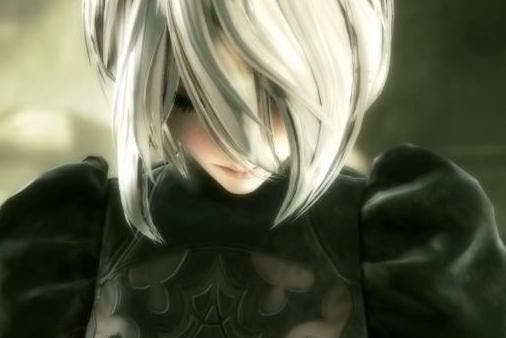


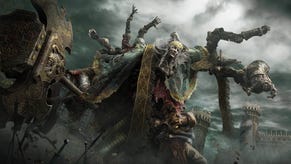
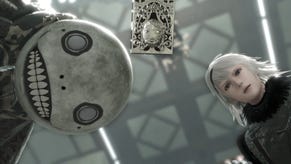
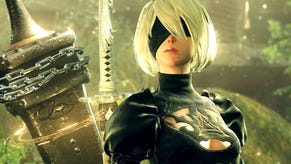

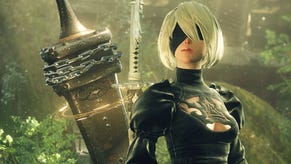
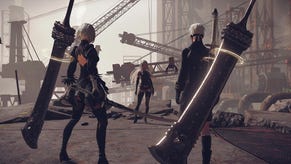
-0-0-screenshot.png?width=291&height=164&fit=crop&quality=80&format=jpg&auto=webp)